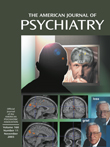Familial and Genetic Effects on Motor Coordination, Laterality, and Reading-Related Cognition
Abstract
OBJECTIVE: Recent research has provided evidence for a genetically mediated association between language or reading-related cognitive deficits and impaired motor coordination. Other studies have identified relationships between lateralization of hand skill and cognitive abilities. With a large sample, the authors aimed to investigate genetic relationships between measures of reading-related cognition, hand motor skill, and hand skill lateralization. METHOD: The authors applied univariate and bivariate correlation and familiality analyses to a range of measures. They also performed genomewide linkage analysis of hand motor skill in a subgroup of 195 sibling pairs. RESULTS: Hand motor skill was significantly familial (maximum heritability=41%), as were reading-related measures. Hand motor skill was weakly but significantly correlated with reading-related measures, such as nonword reading and irregular word reading. However, these correlations were not significantly familial in nature, and the authors did not observe linkage of hand motor skill to any chromosomal regions implicated in susceptibility to dyslexia. Lateralization of hand skill was not correlated with reading or cognitive ability. CONCLUSIONS: The authors confirmed a relationship between lower motor ability and poor reading performance. However, the genetic effects on motor skill and reading ability appeared to be largely or wholly distinct, suggesting that the correlation between these traits may have arisen from environmental influences. Finally, the authors found no evidence that reading disability and/or low general cognitive ability were associated with ambidexterity.



